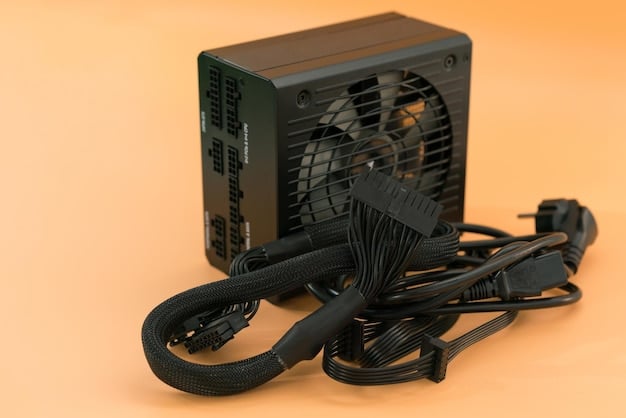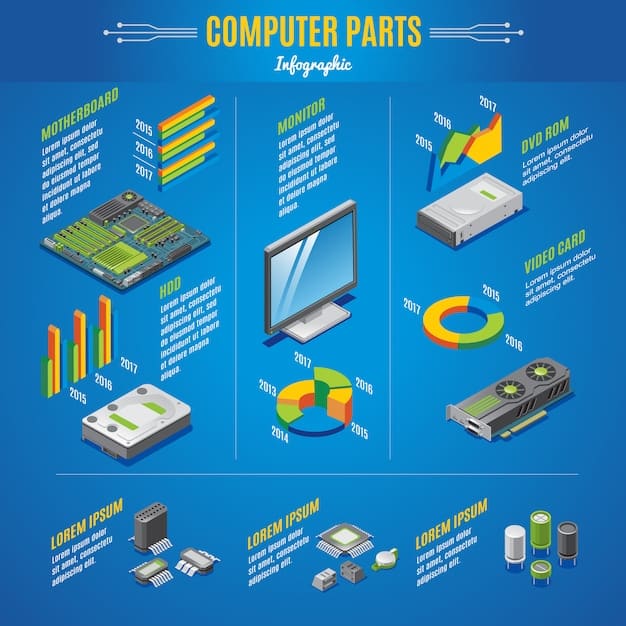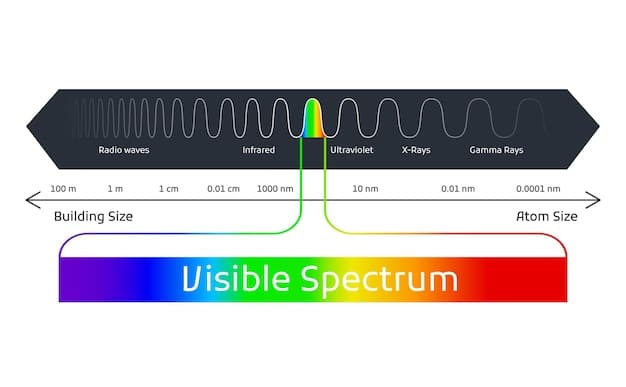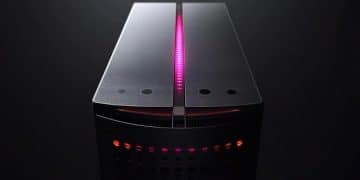Power Supply Units: Saving Money with a 750W PSU

Discover why investing in a 750W PSU (Power Supply Unit) can be a cost-effective choice in the long run. By providing ample power and future-proofing your system, a 750W PSU can prevent costly upgrades and ensure stability.
When building or upgrading a PC, the power supply unit (PSU) is often an overlooked component. Many users opt for the cheapest option that meets their immediate power needs. However, choosing a higher-wattage PSU, like a 750W model, can actually save you money in the long run. But, is a Power Supply Units: Why a 750W PSU Could Save You Money in the Long Run really overblown?
Let’s explore the reasons why a 750W PSU might be a smarter investment than you think, considering factors like headroom for upgrades, efficiency, and overall system longevity. This article will provide guidance and help you make the right decision.
Understanding Power Supply Units and Wattage Needs
Before diving into why a 750W PSU could be a money-saving option, it’s crucial to understand what a PSU does and how wattage requirements are determined. The PSU’s primary function is to convert AC power from your wall outlet into DC power that your PC components can use.
Wattage is the measure of how much power a component consumes. Choosing the right wattage ensures that your system runs stably and efficiently.
Calculating Your System’s Power Needs
Determining your system’s power needs involves adding up the wattage requirements of all your components. Here are some key components to consider:
- CPU: Check the TDP (Thermal Design Power) of your processor, which indicates its maximum power draw.
- GPU: Graphics cards are often the most power-hungry components. Refer to the manufacturer’s specifications for their power requirements.
- Motherboard: Typically consumes around 50-100W.
- RAM: Each stick of RAM typically uses a few watts.
- Storage Devices: SSDs and HDDs consume relatively little power, but it’s still worth considering.
Once you’ve calculated the total wattage, it’s a good idea to add some headroom for overclocking, future upgrades, and transient power spikes. A 750W PSU can provide this necessary buffer, offering advantages that smaller PSUs might not.

The Benefits of Choosing a 750W PSU
Choosing a 750W PSU offers several benefits that can translate into long-term savings. These benefits range from better efficiency and reliability to greater flexibility for upgrades.
Here’s why opting for a 750W PSU might be the right decision for you.
Headroom for Upgrades
One of the most significant advantages of a 750W PSU is the headroom it provides for future upgrades. As technology advances, new components often require more power. By investing in a Power Supply Units: Why a 750W PSU Could Save You Money in the Long Run, you can avoid the need to replace your PSU every time you upgrade your GPU or CPU.
This future-proofing can save you money and hassle in the long run.
Efficiency and the 80+ Certification
PSUs typically operate more efficiently within a certain load range, usually around 40-80% of their maximum capacity. When a PSU is pushed to its limits, it becomes less efficient, wasting energy and generating more heat.
- 80+ Certification: This certification ensures that a PSU meets certain efficiency standards at different load levels.
- Lower Energy Bills: A more efficient PSU wastes less energy, reducing your electricity bill.
- Reduced Heat Output: Less heat means less strain on your cooling system, potentially prolonging the lifespan of other components.
A 750W PSU operating at around 50% load is likely to be more efficient than a 500W PSU running at 90% load. This efficiency translates into cost savings over time.
In conclusion, choosing the right wattage and efficiency rating is a key part of deciding on appropriate Power Supply Units: Why a 750W PSU Could Save You Money in the Long Run for your needs
Addressing Common Concerns About Overkill PSUs
Some users argue that a 750W PSU is overkill for systems that don’t require that much power. While it’s true that you don’t want to significantly exceed your system’s needs, there are valid reasons to opt for a higher-wattage PSU even if your current setup doesn’t demand it.
Let’s debunk some common misconceptions about overkill PSUs.
The Myth of Wasted Power
One common misconception is that a higher-wattage PSU will automatically draw more power from the wall, even if your system doesn’t need it. In reality, a PSU only draws the amount of power that your components require. The 750W rating simply indicates the maximum power it can deliver, not the amount it constantly consumes.
The only way it might waste power is in the efficiency differences at various load levels, as mentioned earlier.
Cost vs. Long-Term Value
While a 750W PSU may have a higher upfront cost than a lower-wattage model, it’s important to consider the long-term value. The ability to upgrade components without replacing the PSU can save you money in the future. The increased efficiency can also lead to lower energy bills over the lifespan of the PSU. However, consumers should balance the cost against future-proofing in Power Supply Units: Why a 750W PSU Could Save You Money in the Long Run assessment.

Factors to Consider When Buying a 750W PSU
If you’ve decided that a 750W PSU is the right choice for your needs, there are several factors to consider when making your purchase.
These factors include the PSU’s certification, brand reputation, and features.
80+ Certification Level
As mentioned earlier, the 80+ certification indicates the PSU’s efficiency level. There are different tiers of certification, including:
- 80+ White
- 80+ Bronze
- 80+ Silver
- 80+ Gold
Higher-level certifications generally indicate better efficiency and higher-quality components. Investing in a PSU with a higher certification can lead to greater energy savings over time.
Brand Reputation and Warranty
Choosing a reputable brand is crucial for ensuring the quality and reliability of your PSU. Established brands often use better components and have more rigorous testing processes. Look for PSUs with long warranties, as this can be a good indicator of the manufacturer’s confidence in their product. Positive reviews and ratings speak to the brand trustworthiness as Power Supply Units: Why a 750W PSU Could Save You Money in the Long Run.
Real-World Scenarios: When a 750W PSU Makes Sense
To further illustrate the benefits of a 750W PSU, let’s look at some real-world scenarios where it would be a sensible choice.
These scenarios will highlight the advantages in different use cases.
Gaming PCs with High-End GPUs
Gaming PCs often include high-end GPUs, which are among the most power-hungry components. If you’re running a high-end GPU, such as an NVIDIA GeForce RTX 3080 or AMD Radeon RX 6800 XT, a 750W PSU is often recommended to ensure stable performance and headroom for overclocking.
These GPUs can have transient power spikes that exceed their rated TDP, making a higher-wattage PSU even more important.
Content Creation and Workstations
Content creation tasks, such as video editing and 3D rendering, often require powerful CPUs and GPUs. Workstations used for these tasks can benefit from a 750W PSU, as it provides ample power for demanding workloads and allows for future upgrades to even more powerful components.
Additionally, workstations often run for extended periods, making efficiency an important consideration. A 750W PSU with a high 80+ certification can help reduce energy costs.
Ultimately, a Power Supply Units: Why a 750W PSU Could Save You Money in the Long Run assessment reveals many gains in efficiency for Content Creation and Workstations
Debunking Myths About Power Supply Units
There are several myths and misconceptions surrounding power supply units (PSUs) that can lead to poor decision-making. Understanding these myths can help you choose the right PSU for your needs.
Here are some common PSU myths debunked.
Myth: More Watts Always Means Higher Quality
While a higher wattage PSU can provide more headroom, it doesn’t necessarily mean it’s higher quality. The quality of a PSU depends on the components used, the design, and the manufacturer’s testing processes.
Myth: Modular PSUs Are Always Better
Modular PSUs allow you to detach cables that you don’t need, reducing clutter and improving airflow. However, modularity doesn’t automatically make a PSU better. The quality of the components and the efficiency rating are more important factors to consider. Therefore, do not make the mistake of equating Power Supply Units: Why a 750W PSU Could Save You Money in the Long Run with it always having to be modular
| Key Point | Brief Description |
|---|---|
| 💡 Upgrade Headroom | Saves money by accommodating future hardware upgrades without needing a new PSU. |
| ⚡ Efficiency | More efficient operation at typical loads, potentially reducing energy bills. |
| 🛡️ Longevity | Reduces stress on the PSU, potentially prolonging its lifespan and increasing system reliability. |
| ⚙️ Component Compatibility | Ensures compatibility with a wide range of components, providing flexibility. |
Frequently Asked Questions
Not necessarily. Even if your current system doesn’t require 750W, it provides headroom for future upgrades and ensures efficient operation at lower loads, making Power Supply Units: Why a 750W PSU Could Save You Money in the Long Run beneficial.
Add up the TDP of your CPU, GPU, motherboard, RAM, and other components. Then, add some extra wattage for future upgrades and transient power spikes to determine appropriate Power Supply Units: Why a 750W PSU Could Save You Money in the Long Run.
80+ certification indicates the PSU’s efficiency level. Higher certifications mean better efficiency, which can lead to lower energy bills. This is one reason that Power Supply Units: Why a 750W PSU Could Save You Money in the Long Run matters.
Modular PSUs can reduce clutter and improve airflow, but the quality of components and efficiency rating are more important factors to consider. Modularity is more of a convenience feature.
No, a higher wattage PSU will only supply the power that your components require. It won’t force more power than needed, so using the right Power Supply Units: Why a 750W PSU Could Save You Money in the Long Run will not cause damage.
Conclusion
In conclusion, while the upfront cost of a Power Supply Units: Why a 750W PSU Could Save You Money in the Long Run might be higher, the long-term benefits make it a worthwhile investment for many PC builds. The headroom for upgrades and greater energy efficiency is worth the investment for most users.
By understanding your system’s power needs and considering the factors outlined in this article, you can make an informed decision and potentially save money in the long run.





